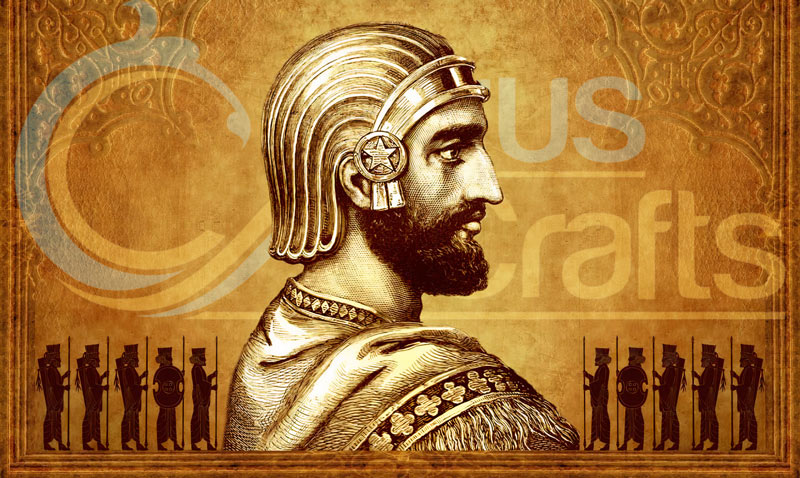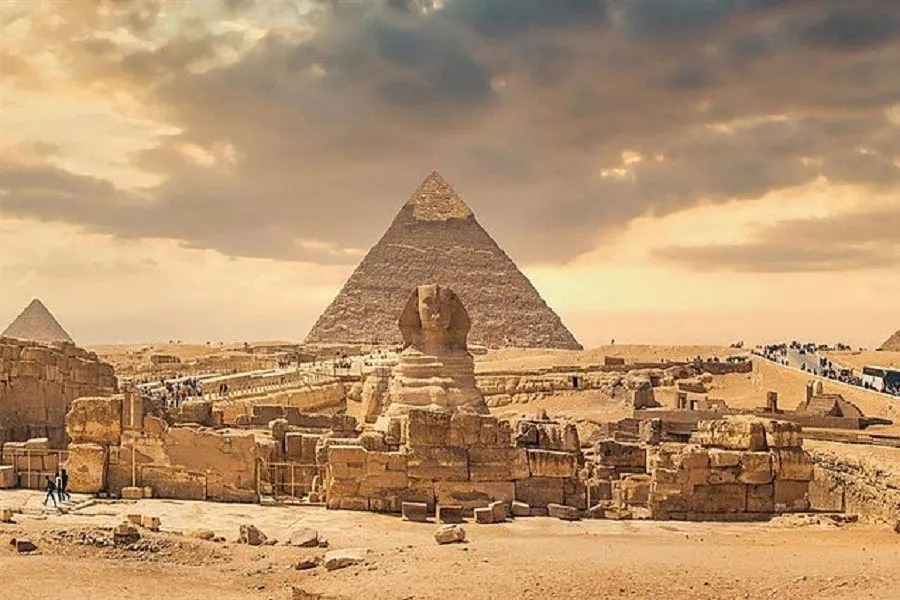From towering pyramids to lost cities, ancient civilizations have left behind mysteries that continue to captivate historians and archaeologists. These societies laid the foundation for modern science, art, governance, and culture.
In this blog, we’ll explore some of the most interesting and lesser-known facts about ancient civilizations, including the Egyptians, Mesopotamians, Mayans, Romans, and more.
1. Ancient Egypt: More Than Just Pyramids

The Great Pyramid Was Originally White and Shiny
-
The Great Pyramid of Giza was covered in highly polished white limestone, making it glisten under the sun. Over time, earthquakes and erosion caused most of the casing stones to fall off.
Cleopatra Lived Closer to the iPhone Than the Pyramid’s Construction
-
The pyramids were built around 2600 BCE, while Cleopatra ruled Egypt in 30 BCE. The iPhone was invented in 2007 CE, meaning Cleopatra’s reign was closer to our time than to the pyramid builders.
Egyptians Invented Toothpaste
-
Ancient Egyptians used a mixture of crushed rock salt, mint, dried iris flowers, and pepper to clean their teeth—an early form of toothpaste!
2. Mesopotamia: The Cradle of Civilization
The First Written Language (Cuneiform) Was Invented Here
-
Around 3200 BCE, the Sumerians developed cuneiform, one of the earliest writing systems, used for record-keeping and literature (like the Epic of Gilgamesh).
They Had the First Known Legal Code
-
The Code of Hammurabi (1754 BCE) was one of the first written legal systems, with laws like "an eye for an eye."
Ancient Mesopotamians Invented the Wheel
-
The first wheel (around 3500 BCE) was used for pottery before being adapted for chariots and carts.
3. The Indus Valley Civilization: Advanced Urban Planning
Their Cities Had Sophisticated Drainage Systems
-
Mohenjo-Daro and Harappa had well-planned sewage systems, with covered drains running beneath streets—something many modern cities still struggle with!
They Traded with Mesopotamia
-
Archaeological evidence shows that the Indus Valley people traded lapis lazuli, cotton, and ivory with Mesopotamia as early as 3000 BCE.
Their Writing System Remains Undeciphered
-
The Indus script, found on seals and pottery, has never been fully decoded, making it one of history’s biggest linguistic mysteries.
4. Ancient China: Innovations That Shaped the World

The Great Wall Is Not a Single Continuous Structure
-
The wall was built over centuries by different dynasties. Much of the original wall has eroded, and what we see today was mostly built during the Ming Dynasty (1368–1644 CE).
They Invented Paper Money
-
The first paper currency appeared in China during the Tang Dynasty (7th century CE), long before Europe adopted it.
Gunpowder Was Discovered by Accident
-
Chinese alchemists trying to create an elixir of immortality instead invented gunpowder in the 9th century CE.
5. The Maya: Masters of Astronomy and Math
They Had a Complex Calendar System
-
The Maya used three calendars:
-
Haab’ (365-day solar calendar)
-
Tzolk’in (260-day sacred calendar)
-
Long Count (tracking vast time periods)
-
They Invented the Concept of Zero
-
The Maya were among the first to use zero in mathematics, centuries before Indian and Arabic mathematicians.
Their Ball Game Was Deadly
-
The Mesoamerican ballgame (Pok-a-Tok) was a mix of soccer and basketball—but losers (or winners, in some cases) were sometimes sacrificed to the gods.
6. Ancient Greece: Birthplace of Democracy and Philosophy
Athens Had the First Recorded Democracy (508 BCE)
-
Only free male citizens could vote, but this was revolutionary for its time.
The Olympics Started in 776 BCE
-
The ancient Olympics included events like chariot racing, wrestling, and sprinting. Winners received olive wreaths instead of medals.
Greek Fire Was a Terrifying Ancient Weapon
-
Used by the Byzantines, Greek fire was a flamethrower-like substance that burned even on water, helping defend Constantinople from invaders.
7. The Roman Empire: Engineering Marvels and Strange Customs

Romans Used Urine to Clean Clothes
-
Public urinals collected urine, which was used as ammonia-rich detergent for laundering clothes.
They Built Roads That Lasted Millennia
-
Roman roads were constructed in layers of sand, gravel, and stone, making some still usable today.
Gladiators Were Mostly Slaves, But Some Were Superstars
-
While many gladiators were slaves or prisoners, successful ones gained fame and wealth, much like modern athletes.
8. The Vikings: More Than Just Raiders
They Reached North America Before Columbus
-
Leif Erikson led a Viking expedition to Newfoundland (Canada) around 1000 CE, nearly 500 years before Columbus.
They Had Surprisingly Good Hygiene
-
Vikings bathed weekly, used combs, and even had ear cleaners—contrary to the "dirty barbarian" stereotype.
Their Ships Were Engineering Marvels
-
Viking longships were light, fast, and could sail in shallow waters, allowing them to raid and trade across Europe.
9. The Inca: Builders of Machu Picchu
They Built Earthquake-Resistant Structures
-
Inca masonry used precisely cut stones without mortar, allowing buildings to shift during earthquakes without collapsing.
They Used a Complex Knot-Based Writing System (Quipu)
-
The quipu was a system of knotted strings used for record-keeping, possibly even storytelling.
They Performed Skull Surgeries (Trepanation)
-
Inca surgeons drilled holes in skulls to treat injuries or illnesses—with some patients surviving the procedure!
10. Ancient Persia: Forgotten Superpower

They Invented the First Human Rights Charter
-
The Cyrus Cylinder (539 BCE) declared freedom for slaves and religious tolerance, considered the first human rights document.
They Had a 1,500-Mile Royal Road
-
The Persian Royal Road stretched from modern-day Iran to Turkey, with relay stations for messengers—a precursor to the Pony Express.
They Used Refrigerators in the Desert
-
The yakhchl was an ancient cooling structure that stored ice and food in the desert using windcatchers and underground chambers.
Conclusion: Why These Ancient Facts Matter
These civilizations shaped modern technology, governance, and culture in ways we often overlook. From democracy in Greece to paper money in China, their innovations still influence us today.













